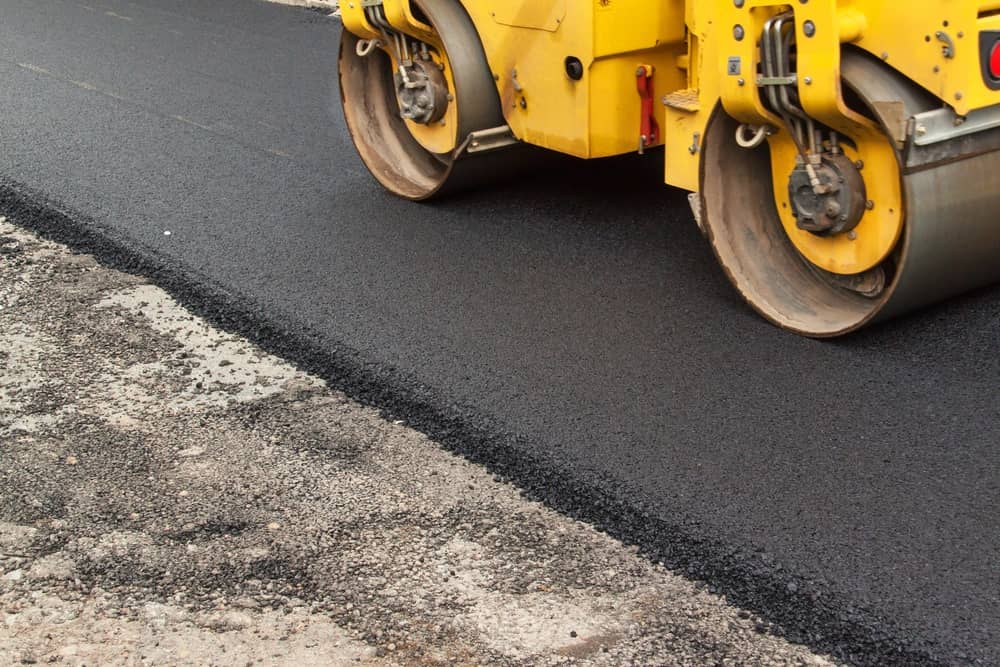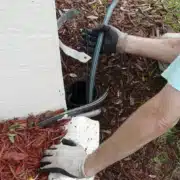How Long Does Asphalt Take to Dry?
Asphalt is a common material used in the construction and maintenance of roads, parking lots, and driveways. It provides a durable, smooth surface that can withstand heavy traffic and harsh weather conditions. If you’re planning to pave your driveway with asphalt, you might be wondering how long it takes to dry. The answer can vary depending on several factors, including temperature, humidity, and the thickness of the asphalt layer.
In the sections below, explore some basic asphalt background and take a look at what drying time you’re looking at based on your project and location.
What is Asphalt?
Asphalt is a black, sticky substance made from a mixture of aggregates (such as sand, gravel, or crushed stone), binder, and filler material. The binder gives asphalt its adhesive properties, allowing it to hold the aggregates together and create a strong, stable surface.
Asphalt is primarily used for paving roads, parking lots, driveways, and patching potholes, or repairing damaged road surfaces.

Factors Affecting Asphalt Drying Time
The drying time of asphalt can vary depending on several factors:
- Temperature – Asphalt dries faster in warmer temperatures. Ideal conditions for asphalt to dry are temperatures above 70°F (21°C).
- Humidity – High humidity levels can slow down the drying process, as the moisture in the air prevents the asphalt from drying quickly.
- Thickness – The thickness of the asphalt layer also plays a role in drying time. Thicker layers will take longer to dry compared to thinner layers.
Average Drying Time for Asphalt
In general, it takes around 24 to 48 hours for asphalt to dry completely under optimal conditions. However, in colder or more humid weather, the drying process may take longer. It’s essential to allow enough time for the asphalt to dry before using the surface to prevent damage and ensure a long-lasting result.
When Can You Drive on New Asphalt?
It’s crucial to avoid driving on newly poured asphalt until it has had sufficient time to cool and harden. Driving on fresh asphalt too soon can cause damage, leave tire marks, and compromise the surface’s integrity.
As a general rule, wait at least 24 hours before driving on a new asphalt surface. For heavy vehicles or high-traffic areas, it’s best to wait 48 to 72 hours! This will ensure the asphalt is dry and ready.
Tips for Speeding Up the Asphalt Drying Process
If you need to speed up the drying process of your new asphalt surface, consider trying the following:
- Ensure proper ventilation – Keep the area well-ventilated to allow moisture to evaporate more quickly. Open windows and doors in nearby buildings to promote airflow.
- Use fans or blowers – Place fans or blowers near the asphalt surface to increase airflow and accelerate the drying process.
- Apply a curing compound – A thin coat of curing compound can help promote faster drying. This works by sealing in moisture and preventing it from evaporating too quickly.
- Avoid heavy objects – Refrain from parking heavy vehicles or placing heavy objects on the freshly laid asphalt, as this can cause indentations and slow down the drying process.
Determining if Asphalt is Fully Cured
To check if your asphalt surface is fully cured, perform a simple thumb test. Press your thumb firmly into the asphalt surface. If it leaves an imprint or feels soft to the touch, the asphalt is not yet fully cured.
Once the surface feels firm and no impression is left, the asphalt has cured and is ready for use.

Other Recommended Maintenance
While your new asphalt driveway dries, take advantage of this time to tackle a few other important home maintenance tasks.
Start by checking your foundation grading to ensure the soil around your home slopes away from the foundation, with at least 6 inches of exposed foundation above grade. This helps prevent water from pooling near your home and causing moisture-related issues.
Next, consider adjusting your irrigation system. For most landscapes, running drip irrigation for one hour per week is sufficient, but it’s essential to monitor your plants closely and adjust the watering schedule as needed based on your soil type and plant requirements.
Finally, if you have brick pavers, now is a great time to give them a thorough cleaning. A simple mixture of baking soda and detergent can effectively remove most stains, but for tougher stains, you may need to use a diluted bleach solution. Always test a small, inconspicuous area first and follow the manufacturer’s instructions to avoid damaging your pavers or harming nearby plants.
When to Call a Professional
If you notice any signs of damage or deterioration, such as cracks, potholes, or unevenness, it’s crucial to address these issues promptly to prevent further damage and costly repairs. A professional asphalt contractor has the expertise and equipment necessary to assess the problem and recommend the most effective solution, whether it’s a simple repair or a more extensive resurfacing project.
In addition to addressing visible damage, it’s a good idea to have your asphalt driveway inspected by a professional regularly. They can identify potential issues before they become significant problems, saving you time and money in the long run. A professional can also provide expert advice on how to maintain your driveway properly, ensuring it remains in excellent condition for years to come.
Conclusion
If you notice any signs of damage or deterioration, such as cracks, it’s crucial to address these issues promptly to prevent further damage and costly repairs. Experts will have the knowledge and equipment necessary to assess the problem. Moreover, they’ll recommend the most effective solution, whether it’s a simple repair or a more extensive resurfacing project.
In addition to addressing visible damage, it’s a good idea to have your driveway and the rest of your home’s exterior inspected by a professional regularly. They can identify potential issues before they become significant problems, saving you time and money in the long run. To get a pro’s eyes on your home in Jacksonville, FL, and surrounding areas, reach out to Inside and Out Property Inspectors today.













